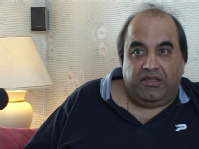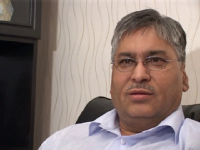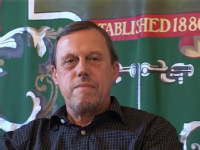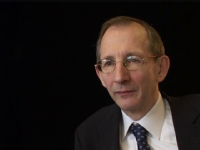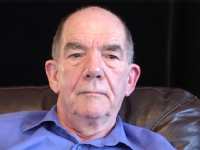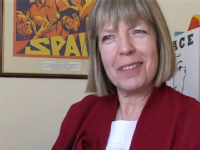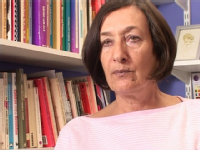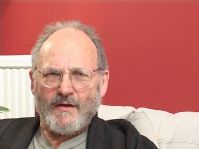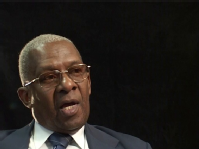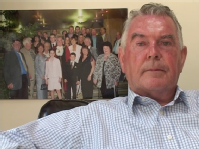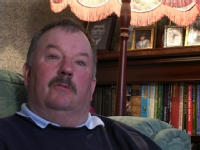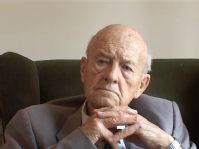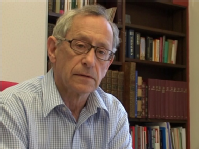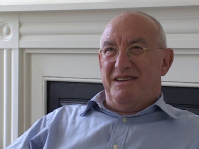Grunwick remembered
In August 1976, workers in the mail order department of Grunwick Processing Laboratories Limited in Willesden, north-west London, walked out in protest against working conditions and the attitude of the management. So began what eventually became one of the most memorable industrial disputes of the post-war period, a struggle for trade union recognition involving mass picketing, confrontations with the police and the national mobilisation of the labour movement in support of Asian immigrant workers. It was also seen as significant by George Ward, the managing director of Grunwick, and his political allies, who were seeking to curb union power generally. The strikers eventually ended their action in July 1978 having failed to secure union recognition and reinstatement.
Presented here are some of the unedited interviews of people involved in the dispute conducted in 2007 by Mr Chris Thomas for The Great Grunwick Strike 1976-1978 - a history, a video which he produced and directed on behalf of Brent Trades Union Council. You can view all the inteviews from our on-line catalogueLink opens in a new window.
- Transcripts of more of the interviews are available further down this page.
- We also hold a paper archive relating to the dispute.
Further reading: Joe Rogaly, Grunwick, 1977; George Ward, Fort Grunwick, 1977; Jack Dromey, Graham Taylor, Grunwick: the workers' story, 1978.
On the front line: the strikers and their local supporters
Jack Dromey, secretary of Brent Trades Union Council in 1976, deputy general secretary of Unite (T & G) in 2007, Labour MP for Birmingham Erdington from 2010*
“One of the most remarkable episodes of trade union solidarity in history”
A close ally of the strikers reflects on their new and zealous approach to trade unionism, the support they attracted from the “big batallions” of the trade union movement, the challenge to the post-war consensus on industrial relations by right-wing employers and politicians, the new aggressive policing style, the attitude of the Labour government and the lessons to be drawn from the dispute. (Reference: 803/00). Link to transcriptLink opens in a new window.
*Preview image currently unavailable.
Jayaben Desai, treasurer of the strike committee in 1976, retired in 2007
“I don’t want to work with you in this situation”, that’s what I told him, and I left”
Mrs Desai's determined leadership during the strike won her the lasting admiration of the trade union movement. Here she describes her pleasant life before coming to England, the aggressive management style at Grunwick which led to the walk-out and the decision to join a trade union, and the subsequent conduct of the strike. (Reference: 803/19A part 1).
Johnny Patel, strike committee member in 1976, cashier in 2007
“The management were adamant from the beginning that they [would] not give in”
Patel was a student worker with no personal grievance who still joined the strikers in solidarity and was therefore sacked. He gives an inside view of the progress of the strike from the beginning to the symbolic final act of the hunger strike outside the Trades Union Congress building. His role included visiting other trade unionists, including Arthur Scargill of the Yorkshire National Union of Mineworkers, in search of support. (Reference: 803/13).
Chris Ball, area organiser for APEX (the union joined by the strikers) in 1976, chief executive of the Age and Employment Network in 2007
“The police were helping George Ward to win the strike”
The clashes between the police and the mass pickets in 1977, which appeared frequently on national televison news, still form one of the most vivid memories of the dispute, both for those who supported it and for those who did not. Ball claims that the police prevented the exercise of the right to picket peacefully and only seemed interested in protecting the bus carrying those still working into the factory (“this large projectile as it hurtled through the picket lines”). (Reference: 803/11A).
The minister and the general secretary
Albert Booth, Secretary of State for Employment in 1976, vice chair of the south-east branch of Amicus in 2007
“Here was a classic case of how not to obtain recognition”
This interview gives an insight into the difficulties which the dispute presented to the government. Whilst the other interviewees are broadly supportive of the strikers’ strategy, Booth asserts that the right approach would have been to recruit Grunwick workers to a union first and then to seek recognition of that union under the Employment Protection Act of 1975, which he and his colleagues had worked hard to draft and get enacted. (Reference: 803/05A).
Roy Grantham, general secretary of APEX in 1976, retired in 2007
“In my opinion it was a token of how we were going to treat immigrant workers”
Grantham describes his conviction that APEX, which was not noted as a militant union, should support the strikers, which included granting them strike pay even though they had never paid any subscriptions. He disagrees with Albert Booth in claiming that the statutary machinery of the time was inadequate for dealing with such an exceptional dispute and that a court of inquiry was the only answer. (Reference: 803/06A).
Common cause and the wider meaning
Dennis Skinner, Labour MP for Bolsover in 1976 and in 2007
“We were dealing with a right-wing political monster”
Among the points made by this colourful MP from a coal-mining background are that the determination of George Ward and his supporters was under-estimated by the government and that the dispute was a ‘rehearsal’ for the more robust approach by the authorities to industrial militancy in the 1980s. (Reference: 803/21).
‘Inky’ Thomson (right) and Keith Millington (left), National Union of Mineworkers Yorkshire region officials in 1976, retired in 2007
"An attack on one section of the working class was an attack on us all”
These representatives of ‘traditional’ trade unionism explain their sense of solidarity with the Grunwick strikers and consider the possible political motivation behind their arrest on the picket line with other NUM officials. They also reflect on the relationship between trade unions and government. (Reference: 803/15).
David Miller, National Union of Mineworkers Yorkshire region branch official in 1976, retired in 2007
“They [the government] saw that mass trade union action puts them in danger and brings results for the working class”
An animated and wide-ranging analysis of the general issues arising from the dispute by a staunch advocate of working-class solidarity, including the conclusion that the labour movement did not learn the lessons as well as its opponents. (Reference: 803/00A).
Interview summaries and transcripts
More of the interviewees and their roles at the time of the dispute are listed below. The interviewees' names are links to the relevant catalogue entries (most interviews were recorded in two parts), from which the videos can be viewed and which give the person's role at the time of the interview. The transcript links are to interview summaries and transcripts in pdf format.
Strike committee members
Vipin Magdani |
Mahmood Ahmed, secretary
|
Local supporters
Supporters from elsewhere
Pat Thomson, Yorkshire miner |
Michael Sheaff, student |

